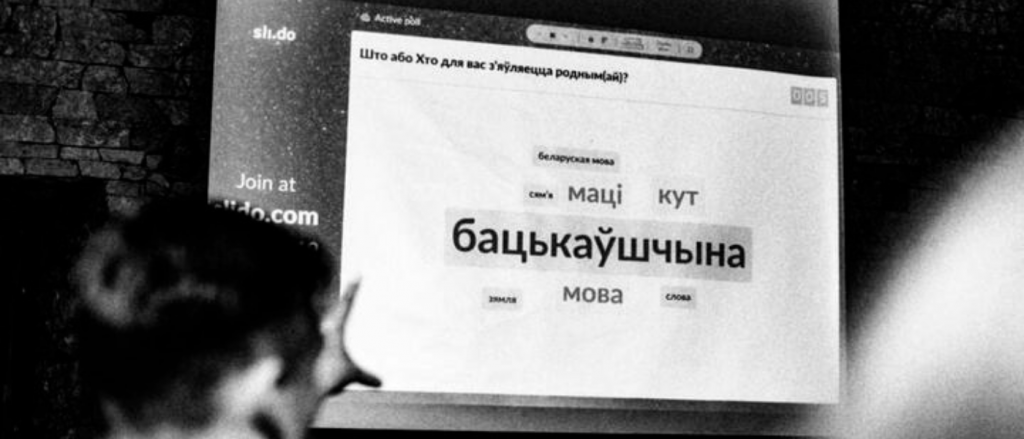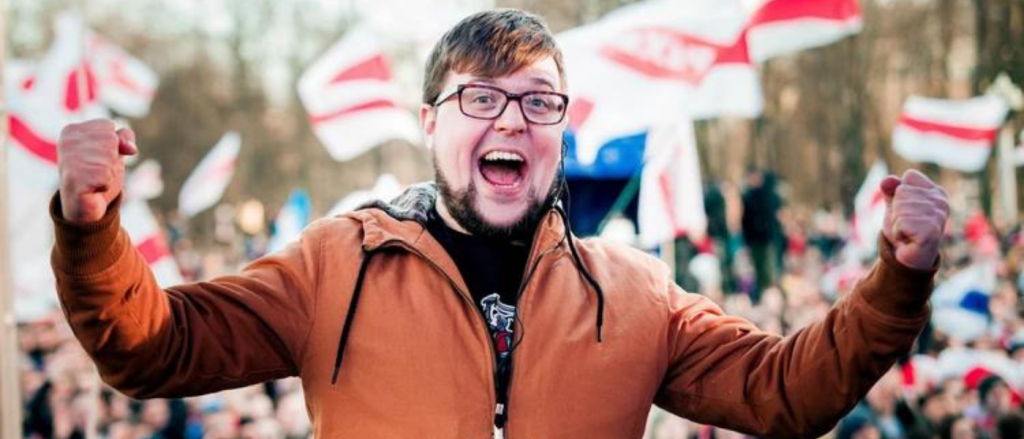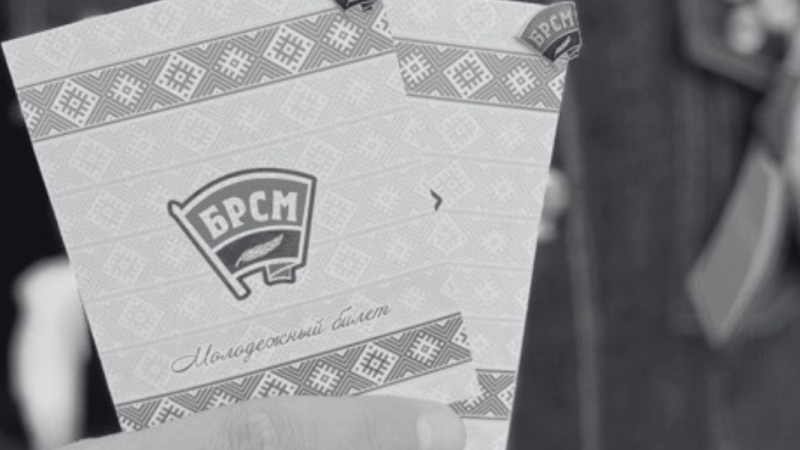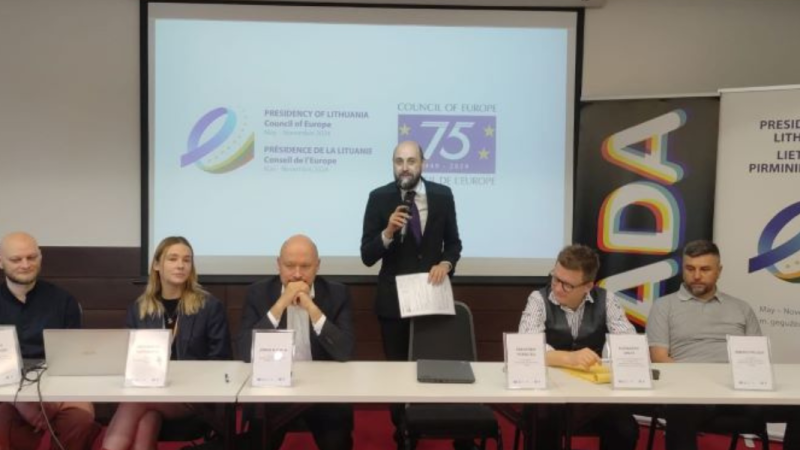Being arrested — because he or she is Belarusians?

At a time when civil and political rights are not guaranteed within the country, people are being tortured, the number of political fugitives and refugees has increased dramatically, it may seem that culture is not even on the back burner. In reality, however, even in such dim times it is worth remembering that culture is a powerful foundation of the nation, which Belarusians need to preserve and carry through all repressions to become a more hardened nation.
The authorities understand the danger of historical memory and cultural development, which is why there is so much repression from the cultural sphere in Belarus. Music bands who played at the protests are jailed, the Belarusan language is detained in the streets of Minsk, and public schools, which emphasised the education of national consciousness, are closed. One of those caught up in this repression is a 35-year-old cultural manager Pavel Bialous. He has been charged with “treason against the state” and running an “extremist formation” for days. Long before 2020 he was making a huge contribution to the development of the Belarusian culture, for which he was, in fact, detained. So what was Belous doing that was so dangerous for the authorities and why was it important to do so?
He founded the biggest cultural platform
Pavel Bialous is not just a cultural manager. He knows how to make “belarusianness” fashionable, to arouse people’s thirst for the national and desire to become the cause of culture. One example of this is the unprecedented popularity of the “Art Usadzba”. The famous “Days of Vyshyvanka”, “Language Festivals”, and even a theatre studio were held within its framework. One of the most interesting ideas of “Art Usadzba” was to distribute five thousand metres of ribbon with the Belarusian ornament – at some time it was thanks to this ribbon, tied on a backpack, that one could get to know ” our people” all over Belarus.

He opened a national shop
Krama Symbal.by, which was created by Pavel Bialous, was selling goods with national symbols – cups, books, colouring books, T-shirts with “Pagonya”, White-Red-White banners and ornaments. After the events of August 2020, the shop began selling products with a political agenda – for example T-shirts with “PSYCHOZ%” written on them – after which inspections began and the shop was shut down. The pressure on the shop became the occasion for another solidarity of Belarusians – queues to sell products were considered as “unauthorised mass events” and dispersed. Now «Symbal» continues the Bialous case and operates online.
He organised cultural initiatives
Pavel was and still is a fan of Belarus when it was not yet mainstream, which is why he initiated a whole row of events and projects that were in support of everything national. Pavel initiated the creation of «Gonna”, was one of the organisers of the anniversary of the BNR, got on with the festivals and presentations of Belarusian bands, raised money at events to support people fined for graffiti and cultural initiatives, participated in a joint prayer for Kurapaty and the shooting of a music video by Lanon Volsky. The list could go on and on almost indefinitely – counting all the initiatives that Pavel has caused must be impossible for him and himself.

What rights have Pavel’s rights been violated?
A number of cultural rights are provided for in the International Covenant on Economic, Social and Cultural Rights, to which Belarus was a party at the time of Belous’ detention. Besides, it says that every person has the right to self-determination (Article 1) and the right to participate in cultural life (Article 15) – in fact, the activity of Pavel and participants of the initiative he initiated was connected with realization of these rights. The closure of his shop, through formal grounds, could be considered as a violation of the righteous and beneficial conditions of work (Article 7): the authorities simply did not allow the shop, which was Pavel’s business, to exist and create workplaces for other people. All of these rights are also outlined in the Universal Declaration of Human Rights: although it does not have the power of law, it is presented as a pattern for developed countries.
But even if we take into account that Belarus has denounced its participation in the international agreements, by persecuting Bialous the state violates its basic law, the constitution. It states that the state is responsible for the preservation of the historical, cultural and spiritual heritage (Article 15), that the state promotes the spiritual and intellectual development of young people (Article 32) and that the freedom of opinion and belief and the free expression of opinions are guaranteed for all (Article 33).
Pavel’s socio-political rights have also been violated. The suspension of the activities of the organisations whose founders are accused of being “extremist formations” falls under the violation of freedom of association under national and international law, and as Belous worked as a journalist for some time, the right to freedom of opinion is clearly violated.
In addition, there is the UNESCO Convention on the Protection and Promotion of the Diversity of Cultural Expressions, which also protects the activities of Pavel Bialous.
Who else is behind bars through the cultural resistance?
According to the data of the PEN-Centre, 120 cultural activists are now in prison. Among them are quite a few young people who put their heart and soul into promoting the Belarusian culture. For example, the folk band Irdorath who played at the protests, Ignacy Sidorchyk who organised poetry parties, Maryam Herasimenko who sang the song “Okean Elzy” in the streets, Ales Lyubianchuk who recreated the historical and cultural heritage… What can one do when the authorities are trying to crush the cultural resistance and such great people are behind bars? To become the bearers of the Belarusian culture for everybody. Belarus lives, but only as long as we keep it in ourselves.



